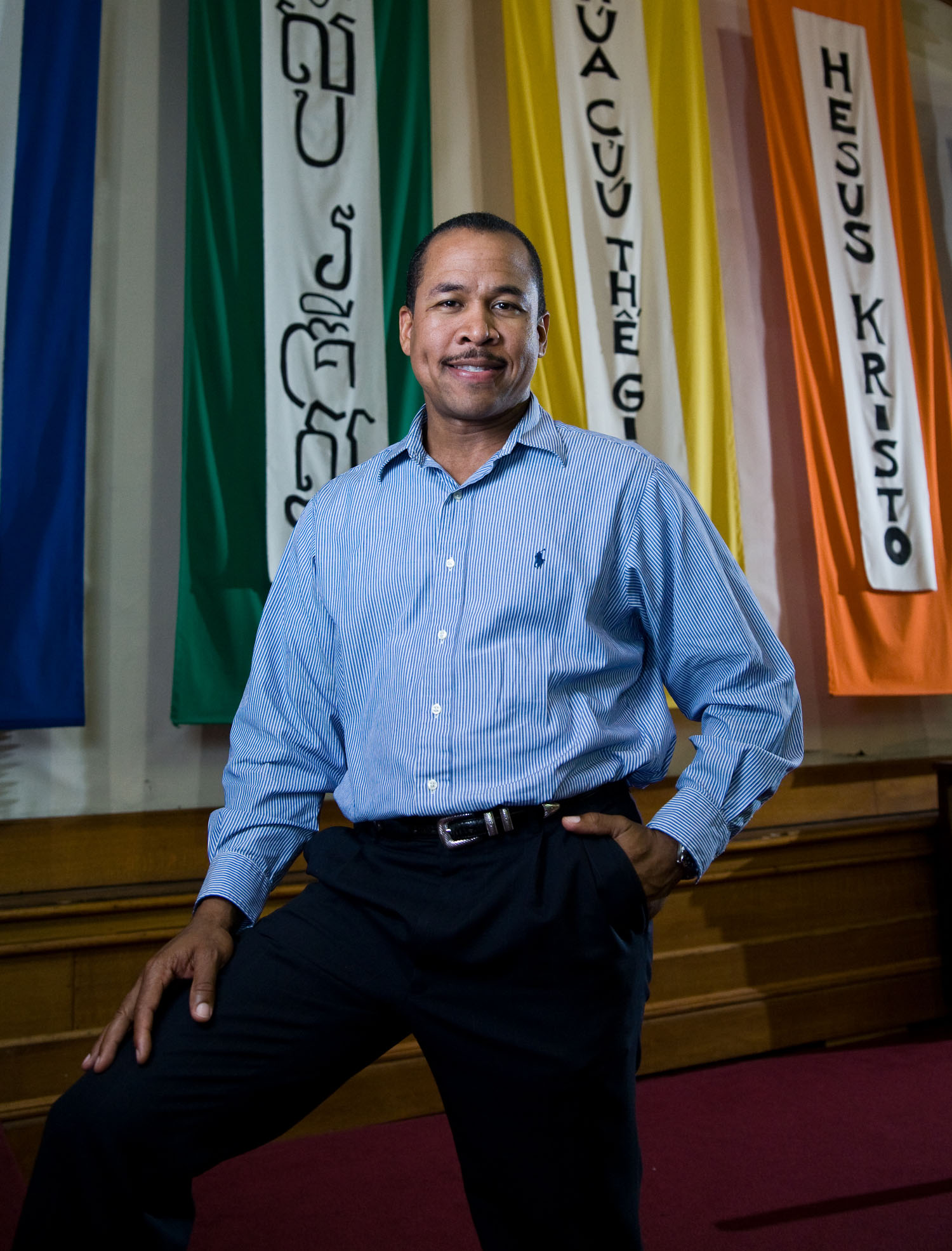
CHICAGO (BP) — Take a step into Uptown Baptist Church in Chicago and it’s clear this Southern Baptist congregation cares about the nations. But that care isn’t just written on 27 colorful sanctuary banners in the native tongues of 27 local people groups. It is demonstrated by a history of starting new churches to reach these people.
Even after helping plant at least 30 Chicago churches over the past 35 years, Uptown has six ethnic churches that meet in its building. The church also partners with church planter Dave Choi and his Church of the Beloved, a two-year-old multicultural church in the Windy City.
“Church planting is the best way for the Gospel to be spread and Christ to be glorified,” said Michael Allen (@ubcreal), Uptown’s pastor since 2005. “I think more and more pastors are becoming aware of this fact: If we want to reach our cities, our state and our country for the Gospel, there is no better way to do it.”
Chicago represents that need as well as most cities. The city has only one SBC church for every 31,791 people in the Chicago metro area. Evangelicals make up less than 10 percent of the area’s population.
Uptown’s planting legacy began with its own founding as a church plant in 1976 by Chicago native James Queen. “I had a burden for the people of Chicago,” said Queen, in a quote on the church’s website. “Early in my Christian life, I made a commitment to see the city won to Christ.”
In the 1980s, Allen said, Queen and other church leaders noticed the growing diversity of the church’s neighborhood. To help reach these different ethnic groups, the church started — or opened their building up for others to use — churches that spoke the people’s languages.
“Our church planting strategy diversified when our community diversified,” Allen said. “Long before the IMB (International Mission Board) strategy of adopting a people group overseas, we were adopting people groups right in the neighborhood because they just kept coming. God was bringing them to our doorstep.”
The church now employs a new strategy to reach the nations in Chicago –partnership with an intentionally multicultural church plant.
“Today I think it’s important to blend more from the beginning and to start more multiculturally rather than segregating the churches in their different language and culture groups,” Allen said.
Even on the budget of an inner-city church with an attendance around 180, Uptown contributes what resources they can to Church of the Beloved. The church also supports the church plant through prayer, encouragement and people when needed.
For example, Choi, who is single, realized he needed help providing mentoring and counseling to his church’s couples. Allen and his wife offered to have interested couples from the Church of the Beloved into their home last summer for a time of mentoring and sharing.
“We have a lot of young people in our church,” Choi said. “To have that resource of a church with older couples who have kids has been great. It has been an encouraging partnership for us. We know we can lean on them whenever needed because they’ve shown such a willingness to serve us.”
The church also has remained consistent in its giving to cooperative Southern Baptist missions. The church contributes 12 percent of its budget to missions, which includes giving to the Cooperative Program and the Chicago Metro Baptist Association.
Allen sees his church’s involvement in church planting as part of a cycle that began when Southern Baptists helped start Uptown and played an important part in obtaining a building in the church’s early days.
“Being a part of church planting shows that we’re bigger than just ourselves,” Allen said. “We’re bigger than what we’re doing in just our little corner of the world. So let’s dig in and facilitate what’s a national movement and the national direction of our denomination. Our church has been so blessed throughout the years by our own denomination that we want to be a team player and give back and serve.”
–30–
Tobin Perry writes for the North American Mission Board. Get Baptist Press headlines and breaking news on Twitter (@BaptistPress), Facebook (Facebook.com/BaptistPress) and in your email (baptistpress.com/SubscribeBP.asp).

















